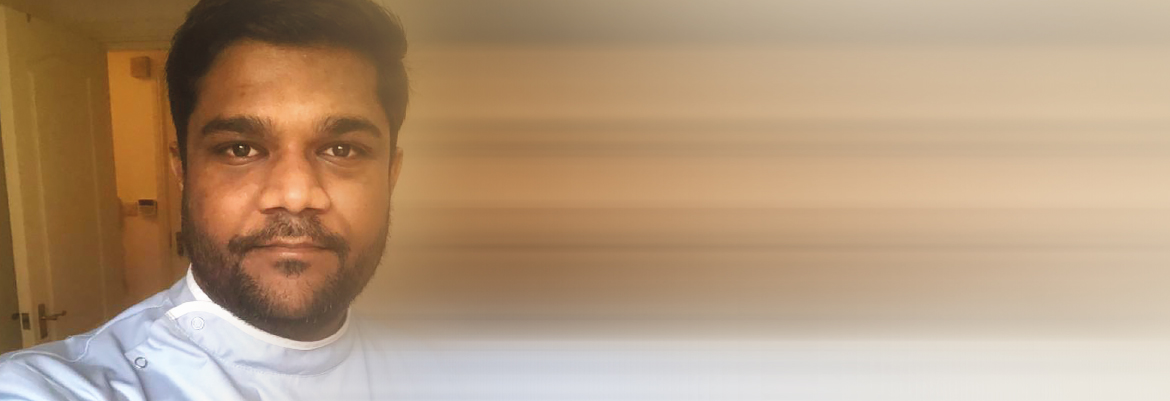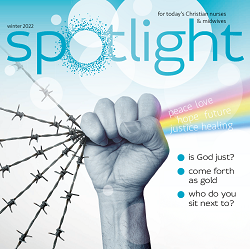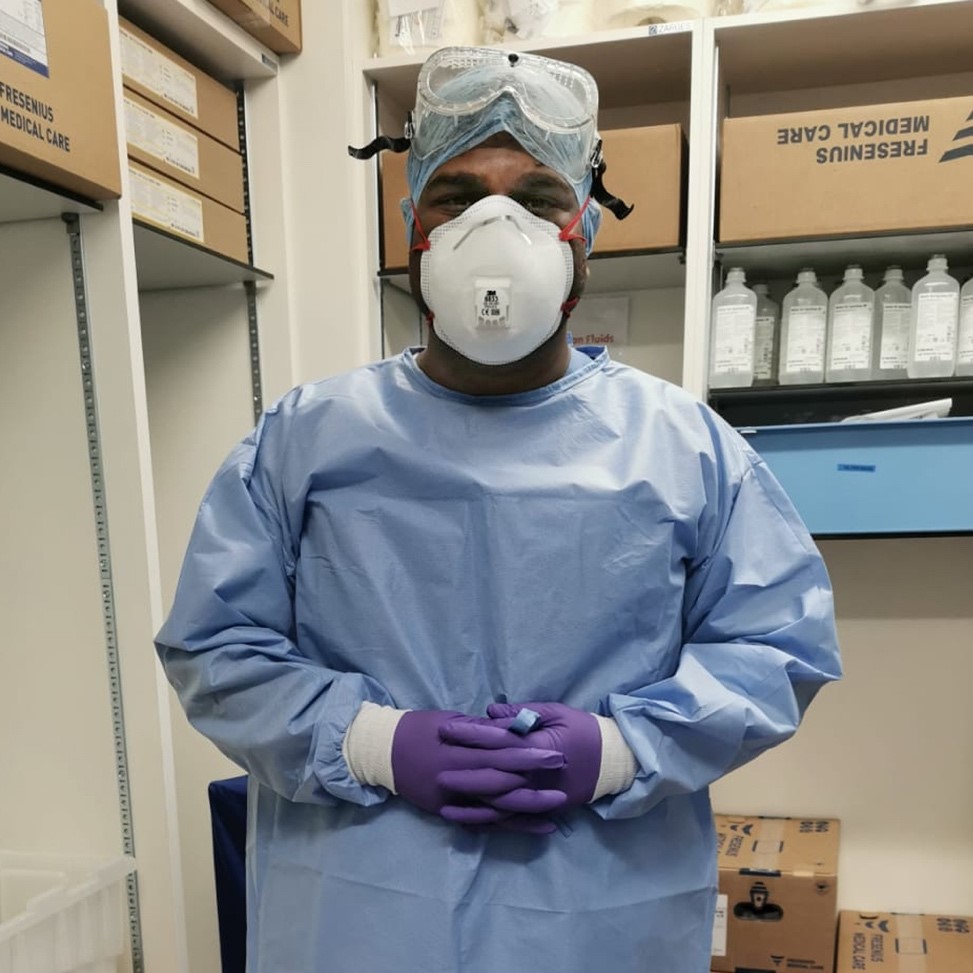Adi: I'm from a small town called Solapur, which is in the Southern Eastern part of Maharashtra, India, where Mumbai is our capital. I moved to the UK in 2018 on my own initially, and then my wife and daughter joined me.
S: Why did you move?
A: While nurses' pay in the NHS may not seem great by UK standards, compared to India it is. Also, back home, nurses aren't valued as they should be. There is more professional dignity for nurses here. In India, I wouldn't be very happy to introduce myself as a nurse, but in the UK I would proudly say I work in the NHS.
S: How did it feel when you arrived here?
A: I wouldn't expect a recruitment manager to come and welcome me personally, show me my accommodation and even carry my bags! Such a friendly gesture.
I had a cultural shock when I met my ward manager, with her tattoos and short hair. At first glance, I thought, 'how is this possible?'. This would be unacceptable for a nurse in India. But I gained respect for her when I saw her working with passion and perfection. Looking at her was so inspiring.
S: What difficulties have you faced?
A: I had problems expressing myself and making myself understood when I arrived. You can pass the language exam, but the English you've learnt is not the same English people speak on the ward. When I was still supernumerary, one of my patients asked me for a cuppa. So, I went to my mentor and said, 'Can you check to see if she has cuppa prescribed'. I thought 'cuppa' was a medication!
S: Have you had experiences where people have been negative towards you?
A: You can definitely deal with patients who aren't tolerant. Sometimes they're not medically or mentally fit enough to treat you as you should be treated, for example, if they have dementia. But I've also come across patients who just want to get across their point that they don't like you. Some colleagues are like that as well.
S: What do you do when something like that happens?
A: Initially, I found it hard to understand why people behaved differently with me compared to the white person standing next to me. Racism is a reality which none of us can deny. People of colour are undermined and stereotyped for so many different things. When I work agency shifts, it's worth travelling a long way to work with a team I know will respect me for who I am and are kind and courteous. There are places I've worked where everyone is hostile; they don't respect me or trust my clinical judgement or practical skills. It's blatant they don't want to listen to me just because I'm Indian.
S: What advice would you give to someone who is experiencing racism?
A: Don't be timid. Speak up. Most hospitals have Freedom to Speak Up Champions or similar initiatives. Help is readily available, and action is taken right away. I think that Indian nurses tend to accept things as they are and don't want to offend the other person, even if they're being racist. Get out of the mentality that you can't speak up. Escalate it to your managers. Don't be long-suffering when you think things are wrong.
S: And what can we do to make nurses from overseas feel more welcome in our workplaces?
A: When sitting in the handover, I've noticed that people of different colours sit in different corners. Why don't you go and sit with them? Smile. Ask them how they are and if they have any questions. When I was a new nurse from India, I wouldn't have the courage to go and sit next to a white person because I'd never done that before. But you have the advantage; you know this place, this is your home. If there was a guest in your home, how would you treat them?
As Christians, one thing that unites us all is our Lord Jesus Christ. We have a higher authority and are accountable to him. I would say to my white, Black, and brown colleagues, 'whatever you do, work at it with all your heart, as working for the Lord, not for human masters'. (Colossians 3:23) That would make everything much simpler.
S: Thank you for your vulnerability with us, Adi. We appreciate you sharing your story with us and are humbled and challenged by it.
Aditya Naidu is an ITU Nurse in the North of England
































